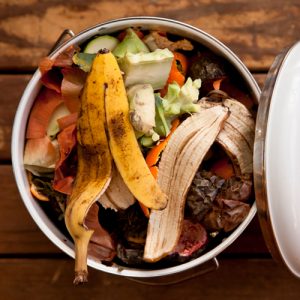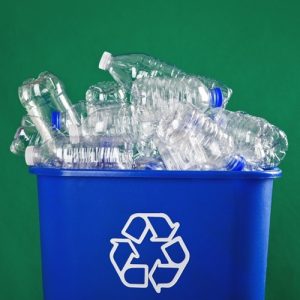Ethical Catering


View our Sustainable Food Policy
View our Healthy Eating Policy
We recognise our responsibility to provide healthy and sustainable food and drink for our customers. We will always incorporate environmental, ethical, and social considerations into the products and services we provide to you.
“UoL Food and Drink, the University’s catering and retail provider, has a Sustainable Food Policy which requires all the fish that it serves to be sustainably sourced or Marine Stewardship Council approved, meat to be Red Tractor approved, and shelled eggs to be Red Lion quality and from free range hens. It also encourages that palm oil, where it must be used in food products, be from a sustainable source.”
University of Leicester Sustainable Procurement Guidance
We take pride in making it our responsibility to encourage our suppliers and contractors to minimise negative environmental, ethical and social effects associated with the products and services they provide to us. We strive to ensure that local and smaller suppliers are not discriminated against in the procurement process and through our specifications.
Current Assurances for your peace of mind:
We reduce our paper cup waste by offering a 15p discount, when customers bring their own reusable travel cup.
> Our Community Kitchen located in the Percy Gee Building is available to staff and students to get close to end date foods, to continue to reduce food waste.
> Life Water is our supply of bottled water, where each bottle purchased helps to support and fund clean water projects across the world through the partner charity, Drop4Drop.
> All of our soups are plant-based and gluten free, making them suitable for vegan, vegetarians and those who need to follow a gluten free diet.
> We continue to maintain our direct trade relationship with sustainable Fairtrade coffee farmers/suppliers.
> We continue to serve sensible portion sizes to eliminate unnecessary food waste.
> SKVP is our dedicated 100% vegetarian and vegan food outlet in Campus Kitchen, to provide meat-free options every weekday.
> We have a preserved living moss wall in Campus Kitchen that is sustainable, because it improved air quality without needing a watering system, as well as providing noise reduction and reducing carbon dioxide levels.
> Within our Hospitality department, we advise potential customers on how to optimise low-carbon catering through delivered hospitality, how to avoid over-ordering and reduce food waste.
> We create menus so that at least half of what is offered overall is vegetarian.
> We have switched almost all our cold drinks to aluminium cans for infinite recycling.
> We turn our waste cooking oil into bio-diesel which is used to run the vehicles that deliver our food to our outlets.
> Our food waste is collected and taken to an anaerobic digester plant, for food compost and methane by-product to be turned into fuel.
> We try and source suppliers within a 50 mile radius, where possible, to reduce our carbon footprint.
> We buy seasonal and local food and veg, where possible.
> We use a chopping board resurfacing service called Nella. Closing the loop on waste disposal, reducing our carbon output, while maintaining high food hygiene standards – we swap worn chopping boards for duplicate resurfaced sets on a regular basis.
>We recycle all our packaging cardboard.
> All the fish we serve is sustainably sourced or MSC approved.
> All our meat is Red Tractor approved.
> All our take-away cutlery is recyclable.
> Our takeaway containers are either recyclable or compostable.
> We are committed to using products containing sustainable palm oil.
> All our shelled eggs are Red Lion quality, from free range hens.
With 66% of the UK population believing that ethical considerations are important when choosing where to eat*, it is important to us that we reflect those views as we too believe that ethical and sustainable catering based on research should be implemented throughout our business.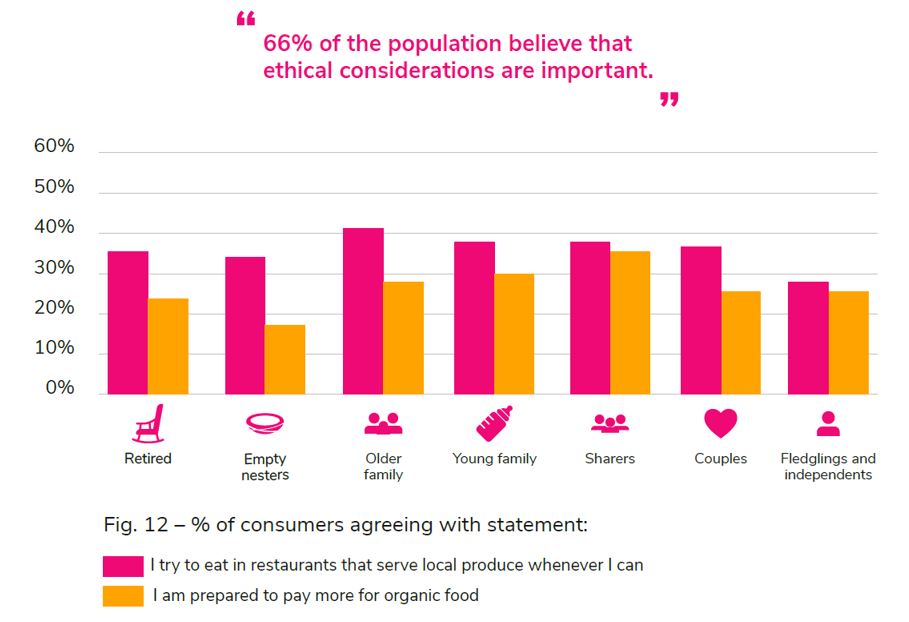
Leicester Services Partnership is a member of The University Caterers Organisation (TUCO), who were “founded as a professional membership organisation for in-house caterers working in Higher and Further Education institutions.” It is part of their strategy to embed sustainability and social value at the heart of the procurement process, and therefore allowing us to align our business with sustainable and sociably responsible suppliers.
We are following the Sustainable Restaurant Association (SRA) 10-point sustainability framework under the three main pillars of Sourcing, Society and Environment. This framework is in line with the Sustainable Development Goals (SDGs) created by the United Nations (UN) to provide a global framework for sustainable development.
OBJECTIVES 
•SOURCING•
Celebrate Local and Seasonal
Promote local, seasonal produce on the menu ◊
Change our menu with the seasons ♦
We know the provenance of 100% of our ingredients ♦
We source food from at least one local farmer, fisherman or producer ♦
Serve More Veg and Better Meat
At least half of our menu is vegetarian ♦
We offer meat in reduced portion sizes (if over 85g) ◊
We don’t serve eggs from caged hens ♦
We offer at least one vegan dish a day ♦
Source Fish Responsibly
We never serve endangered species (IUCN Red List) ♦
We change fish options on the menu to avoid spawning season ◊
We only serve MCS Green rated fish ◊
We tell diners about fish sustainability on the menu ◊
We serve a diversity of species on our menu
(beyond tuna, cod, haddock, salmon and prawns) ◊
Support Global Farmers
We work with coffee, tea, chocolate and/or sugar suppliers who have transparent direct trade agreements ♦
We only use responsibly sourced palm oil ♦
We only buy certified fairly traded tea, coffee, sugar and/or chocolate ♦
We buy produce in a way that ensures workers’ rights, labour and environmental stewardship in our supply chain ♦
We only buy responsibly sourced soy ♦
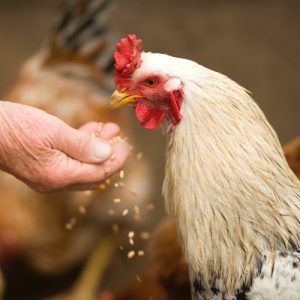
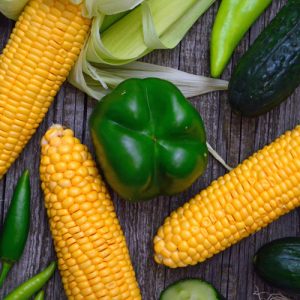
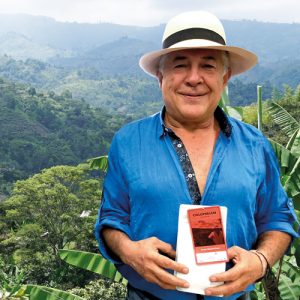
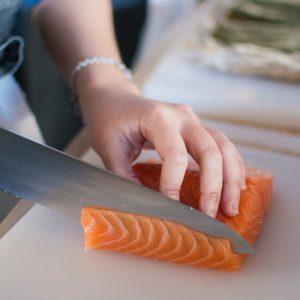
•SOCIETY•
Treat Staff Fairly
We don’t have staff working unpaid overtime ♦
We ensure equal pay for equal roles ♦
We have a known grievance policy and system for feedback and complaints that is accessible to all staff ♦
Support the Community
We are accessible to those with disabilities ♦
We collect money for charity with our diners ♦
We donate staff time or space on site or money to those who need it ♦
We are a socially inclusive recruiter ♦
Feed People Well
We disclose the calories on our menus ◊
We do not serve endless refills on sugary drinks ♦
No main courses on our menu are more than 50% of your recommended daily intake of calories, fat, sugar or salt ♦
We cater to different dietary needs ♦
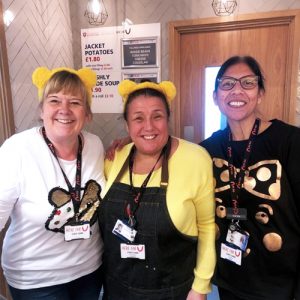
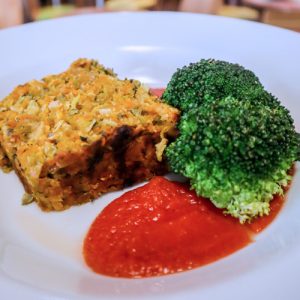
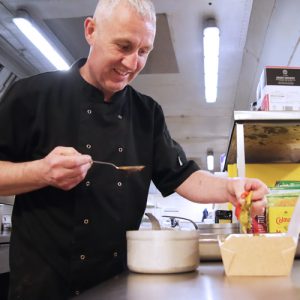
•ENVIRONMENT•
Value Natural Resources
We train staff on reducing food waste, energy and water ◊
Reduce Reuse Recycle
We don’t use plastic straws, cutlery, stirrers or sachets ♦
We buy from suppliers who minimise single use plastic packaging ♦
We recycle glass, plastic and paper/cardboard ♦
We only use items that are 100% reusable or compostable ◊
Waste No Food
We measure food waste and set reduction targets ♦
We separate food waste, and ensure it is disposed of as anaerobic digester or composting ♦
We use preservation methods to reduce food waste ♦
We donate surplus food ♦
